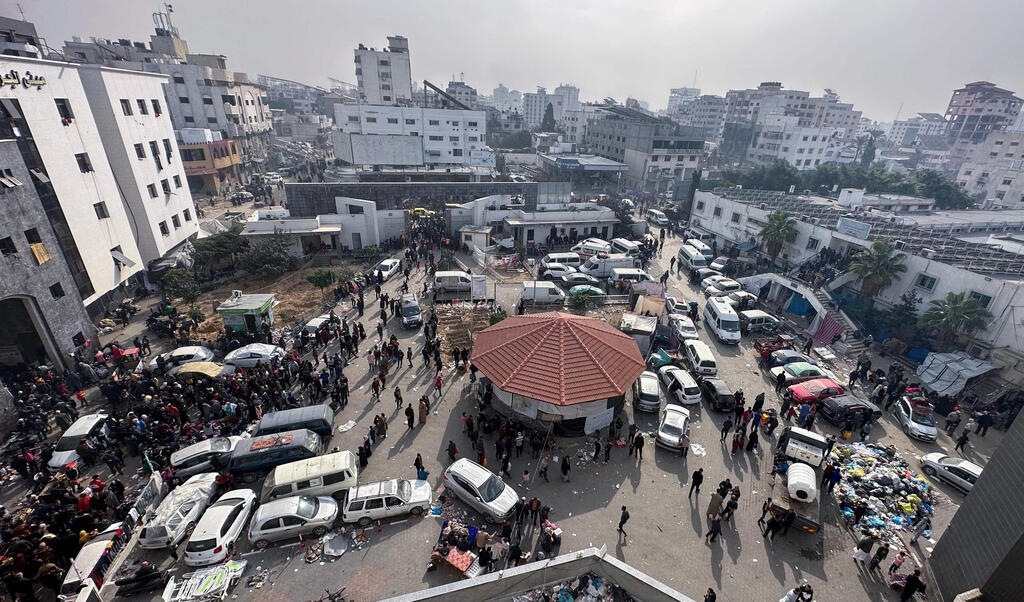The Hamas operatives who returned to hide in the northern Gaza Strip’s Al Shifa Hospital wrongly assumed that Israel, facing massive international pressure, would not dare to respond, even if the IDF and the Shin Bet found out about their presence there, for fear of backlash from Washington and global public opinion.
IDF forces clash with Hamas terrorists at Al Shifa Hospital, Gaza City
They likely decided to wait in the hospital for a cease-fire that would come as part of a deal for the release of hostages, after which they could emerge and attempt to rebuild the organization's military assets, as they did during the previous cease-fire for a hostage release in November.
Details of the Israeli operation at Al Shifa Hospital are not fully disclosed yet. Injured terrorists, including possibly high-ranking ones, may have sought refuge there, despite previous IDF clearances.
It's safe to assume that Hamas will maintain this pattern in the future, even after IDF advances into Rafah and the hunt for Yahya Sinwar and Mohammed Deif ends.
Hamas won’t surrender. Its fighters will try to survive as long as they have hope and sporadically engage in guerrilla warfare against the IDF in the Gaza Strip. This could take months, possibly over a year, compelling the IDF to firm up its security hold on areas where Hamas' military capacity has been dismantled.
This scenario mirrors the aftermath of Operation Defensive Shield in 2002 in the West Bank: the IDF entered Palestinian cities and towns, but pockets of resistance and terrorist cells remained active with intensity until 2004 when the resistance waned.
In fact, the IDF's "mowing the grass" tactic, which began after Operation Defensive Shield, continues to this day with nightly arrests, intelligence-based preemptive strikes and operations in cities, refugee camps and villages as an extension of that 2002 campaign.
More stories:
This suggests that the IDF and Shin Bet are likely to remain in the Gaza Strip beyond 2024, albeit in smaller, sometimes covert, forces. Surviving Hamas terrorists will continue engaging them for a long time, and it's important to acknowledge this reality.
The raid on Al Shifa serves as a warning to terrorists hiding in Nasser Hospital in Khan Younis and other hospitals in the southern Strip and central camps. More operations like this are in the works.
The operation indicates that Hamas survives because its leaders and operatives believe global public opinion will soon end IDF and Shin Bet actions. They do not surrender, hoping international pressure on Israel will force such a concession.
IDF announces raid of Al Shifa Hospital
(Video: IDF Spokesperson's Unit)
In this context, the Israeli government and its leader must approach the U.S. and Western allies to clarify that their calls for an immediate cease-fire encourage Hamas not to surrender, prolonging the war and the suffering of the population.
Simultaneously, Israel has to deliver substantial humanitarian aid to the Strip to counter the international community's demands for a cease-fire.





